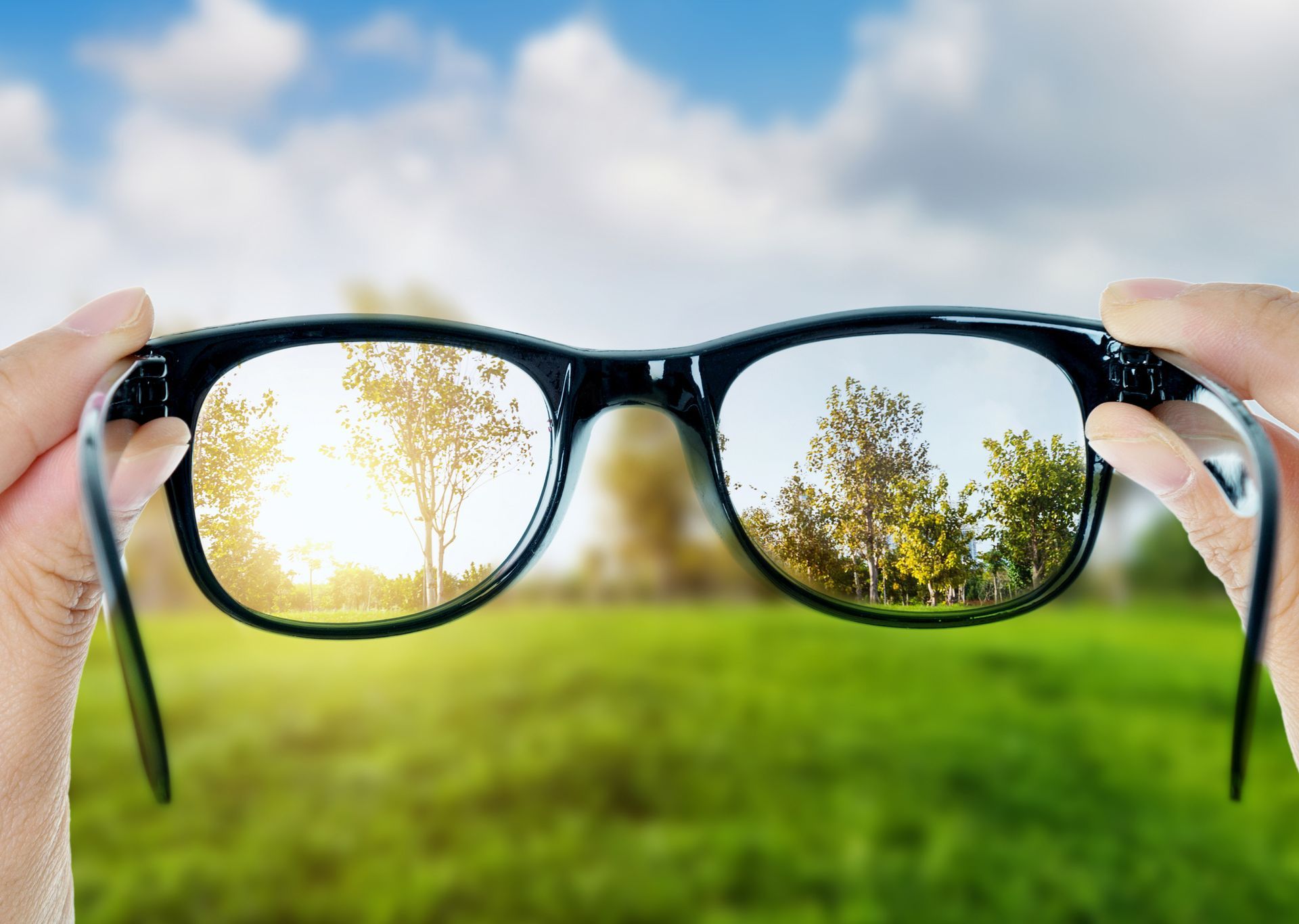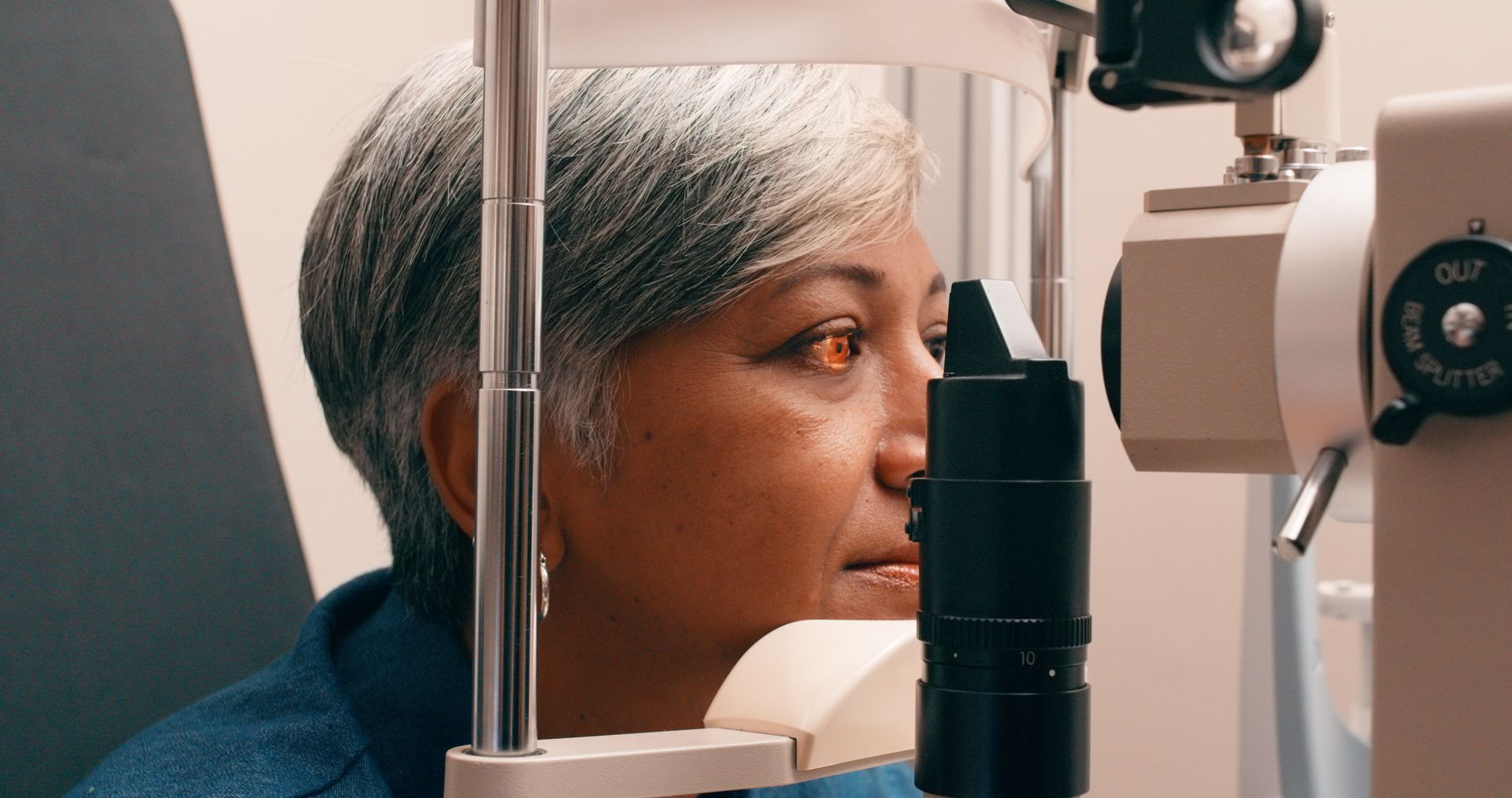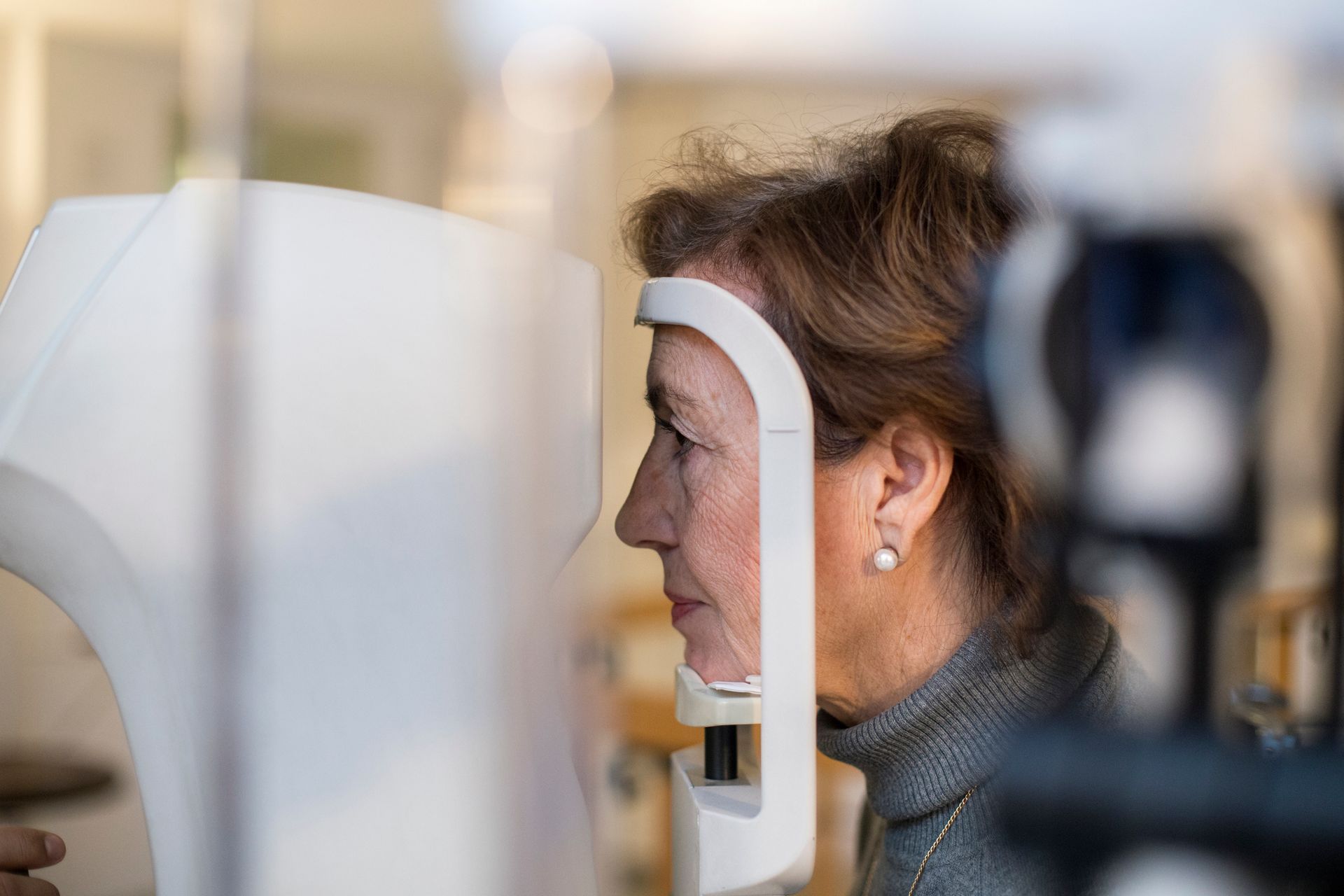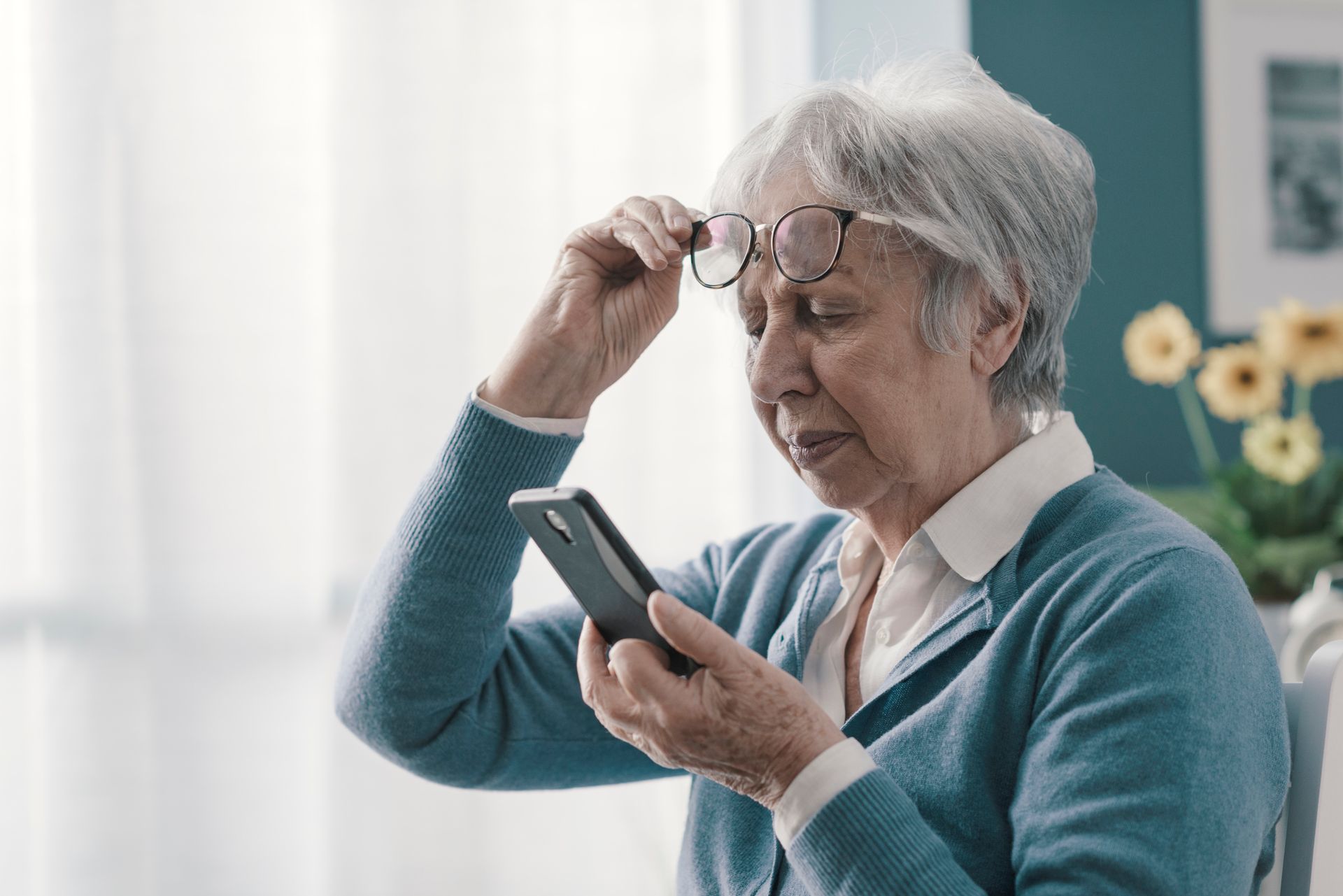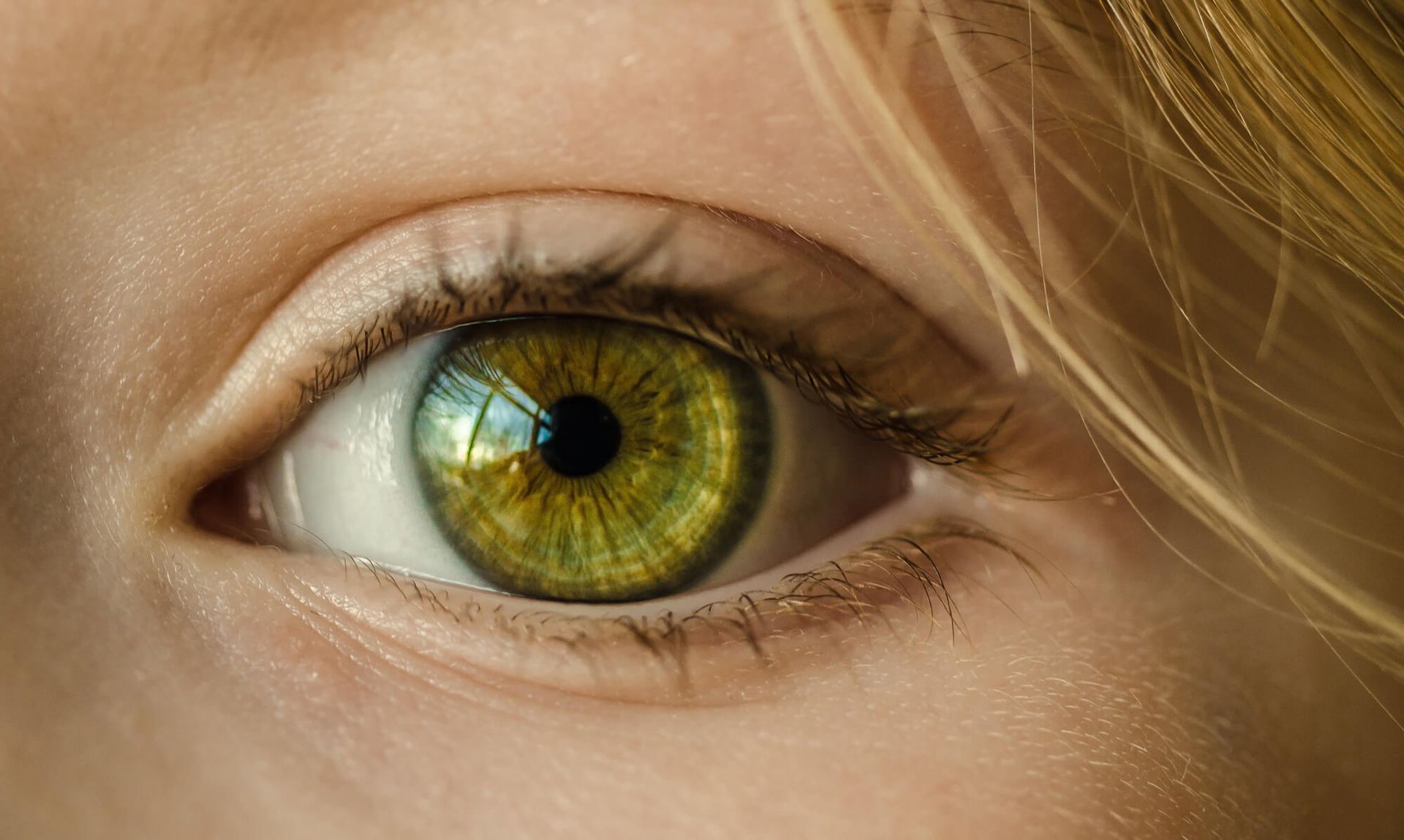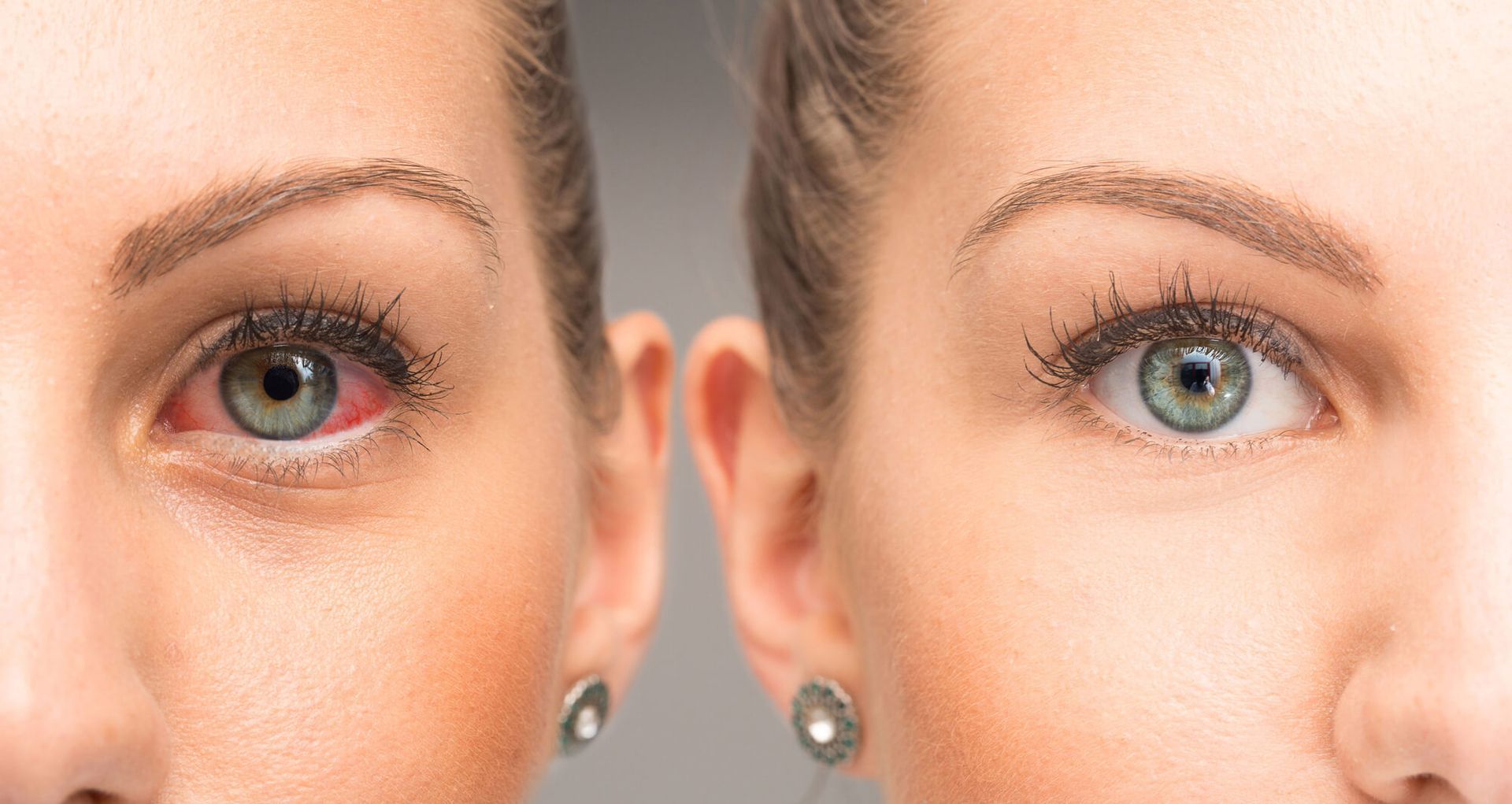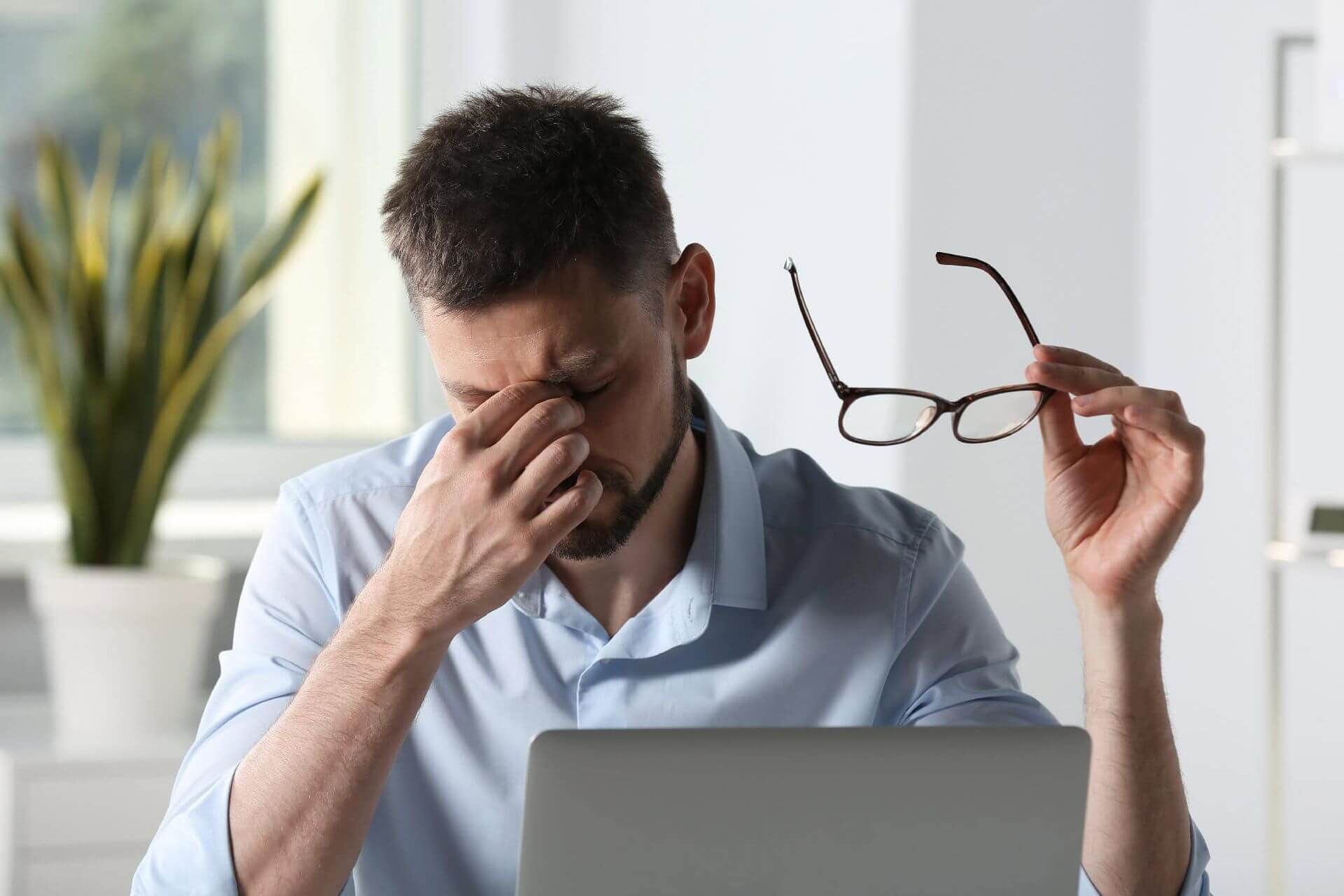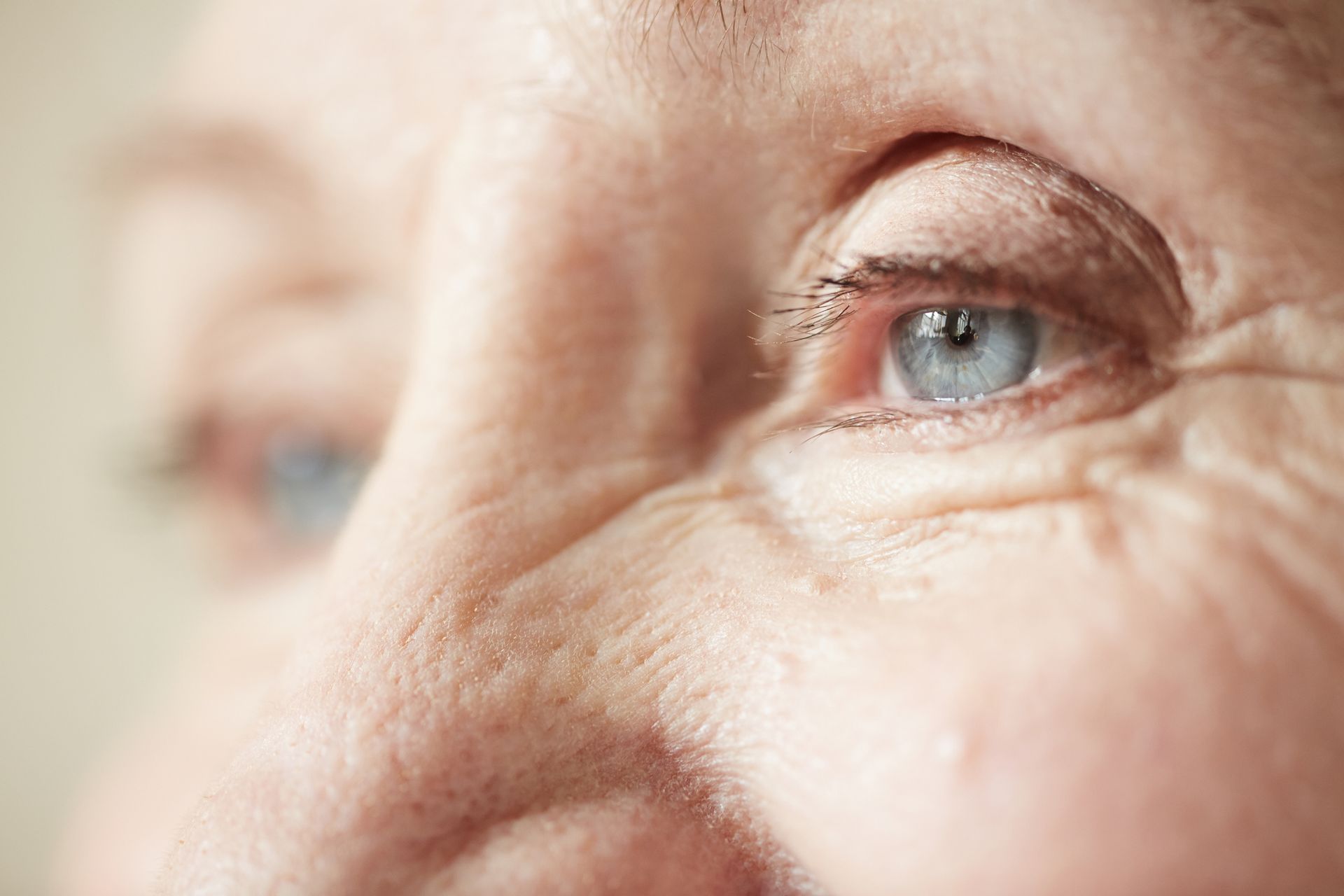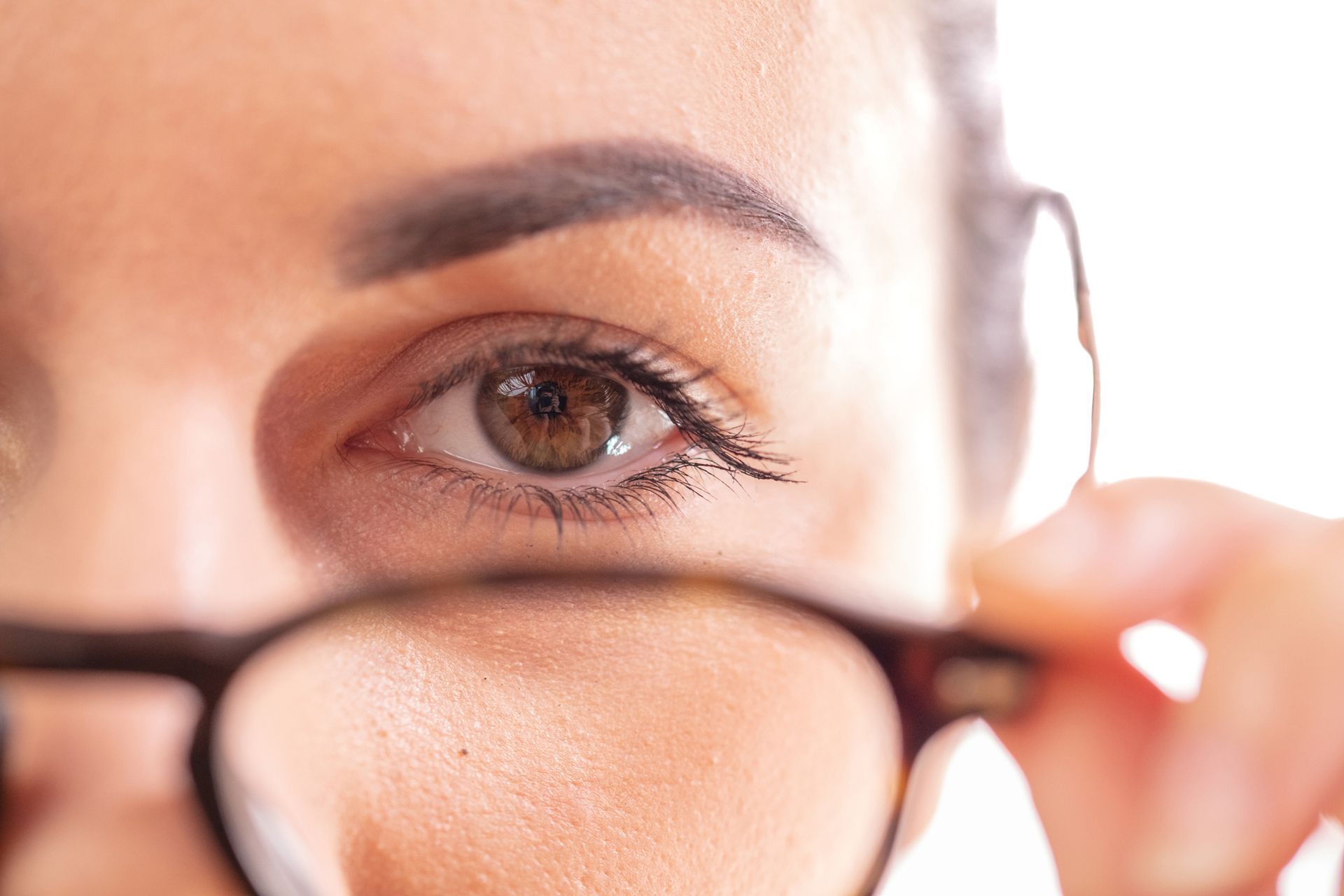How Sleep Deprivation Impacts Your Eyes: A Guide to Sleep Deprived Eyes
Sleep-deprived eyes can cause redness, itching, and twitching. If you’ve noticed these symptoms, you might be wondering why they happen and what you can do to prevent them. This article explores the immediate and long-term effects of sleep deprivation on your eyes and offers tips for maintaining healthy vision.
Key Takeaways
- Sleep deprivation can cause immediate eye issues such as dryness, redness, and involuntary twitches due to reduced tear production and irritation.
- Chronic sleep deprivation can lead to severe long-term vision problems, including glaucoma, myopia, and diabetic retinopathy.
- Improving sleep through a sleep-friendly environment, healthy sleep habits, and regular eye checkups can help prevent and mitigate eye health issues.
Immediate Effects of Sleep Deprivation on Eyes
Sleep deprivation has immediate, noticeable effects on your eyes, including:
- Dryness
- Itching
- Redness
- Involuntary twitches
Sleep plays a pivotal role in maintaining eye health by ensuring that the eyes remain lubricated and irritant-free.
Let’s examine these immediate effects in detail.
Dry and Itchy Eyes
Insufficient sleep triggers your body to decrease tear production, resulting in dry, itchy eyes. Tears are essential for maintaining eye health, as they lubricate the eyes and flush out irritants. A lack of sleep reduces both the production and quality of tears, leading to discomfort and irritation. Have you ever felt that scratchy feeling when you blink? That’s your eyes crying out for more sleep.
The symptoms of dry eyes include not just itching and irritation but also redness and a scratchy sensation. These symptoms can cause significant discomfort and distraction throughout the day, hindering your ability to concentrate on tasks. If left unchecked, chronic dry eyes can lead to more serious vision problems, such as eye infections, emphasizing the importance of maintaining proper eye health through adequate sleep.
Redness and Bloodshot Eyes
Redness and bloodshot eyes are among the most obvious indicators of sleep deprivation. This occurs because lack of sleep makes it harder for your body to flush out irritants and toxins from the eyes. The reduced ability to manage these irritants leads to inflamed and more prominent blood vessels, giving your eyes that telltale bloodshot appearance.
Furthermore, as your body’s ability to remove irritants diminishes, it leads to redness and eye irritation, giving your eyes a tired, unhealthy appearance with dark circles. Bloodshot eyes are not just a cosmetic issue; they indicate that your eyes are struggling to cope with the lack of rest and are more vulnerable to infections and other complications.
Eye Twitches and Spasms
Eye twitches and eye spasms, or myokymia, are involuntary muscle movements around the eyes commonly triggered by sleep deprivation. These twitches can be not only annoying but also disruptive, especially during activities that require intense visual concentration. The muscle fatigue from insufficient sleep leads to these spasms, interfering with normal eye function.
Chronic insomnia can exacerbate these symptoms, making eye twitches more frequent and severe. While they might seem minor, frequent eye twitches are a sign that your eyes and body are not getting the rest they need. Ensuring you get enough sleep every night can help prevent these uncomfortable spasms and maintain proper eye health.
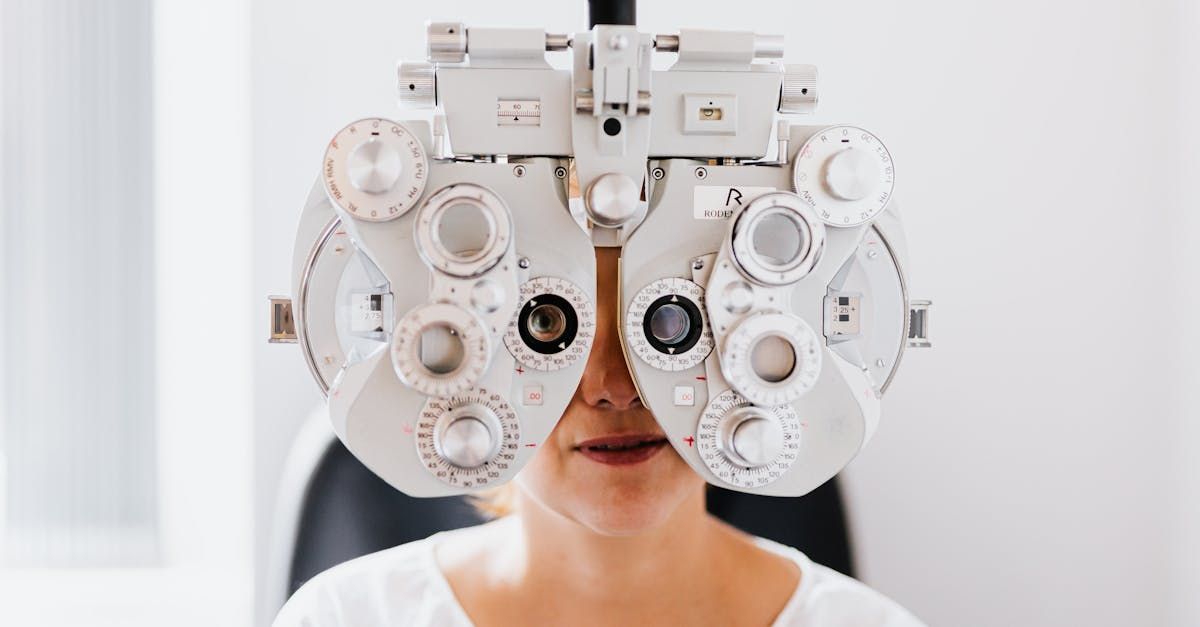
Long-Term Vision Problems from Lack of Sleep
Though the immediate effects of sleep deprivation are concerning, the long-term consequences pose even greater alarm. Chronic sleep deprivation can lead to serious vision problems such as glaucoma, myopia, and diabetic retinopathy.
Gaining insight into how sleep affects these risks can inspire you to prioritize sleep and safeguard your eye health.
Increased Risk of Glaucoma
Glaucoma is a severe eye condition characterized by increased fluid pressure inside the eye, which can damage the optic nerve and potentially cause permanent vision loss. Poor sleep patterns, including insomnia and sleep apnea, can elevate the risk of developing glaucoma by up to 13%. This elevated risk is linked to higher eye pressure during sleep disturbances.
Individuals with obstructive sleep apnea (OSA) are particularly at risk, as OSA increases the likelihood of developing glaucoma and other serious conditions like heart attack and stroke. The chronic stress and systemic health issues associated with poor sleep can accelerate the onset of eye diseases like glaucoma, making it crucial to address sleep disorders early on.
Myopia (Nearsightedness)
Typically, Myopia, also known as nearsightedness, develops during childhood and adolescence. Chronic sleep deficiency during these critical growth periods can disrupt normal eye development, contributing to the onset of myopia,. Studies have shown that children who get fewer than five hours of sleep per night are significantly more likely to develop myopia compared to those who sleep more than nine hours.
This increased risk is a stark reminder of how essential adequate sleep is for young people’s eye health. Ensuring that children and adolescents get enough rest can help prevent the development of vision problems like myopia, which can affect their quality of life and academic performance.
Diabetic Retinopathy
Diabetic retinopathy, a complication of diabetes that impacts the eyes, can have its risks amplified by poor sleep habits. Irregular sleep patterns can exacerbate the risks for diabetic individuals, leading to complications in blood sugar regulation and increasing the likelihood of eye problems. Consistently poor sleep can hinder blood sugar control, contributing to the development of diabetic retinopathy.
Diabetic men, in particular, may face higher risks when they sleep too much or too little. This highlights the importance of maintaining regular sleep patterns to manage diabetes effectively and protect eye health. Regular monitoring and good sleep hygiene are essential for preventing diabetic retinopathy and maintaining overall eye health.
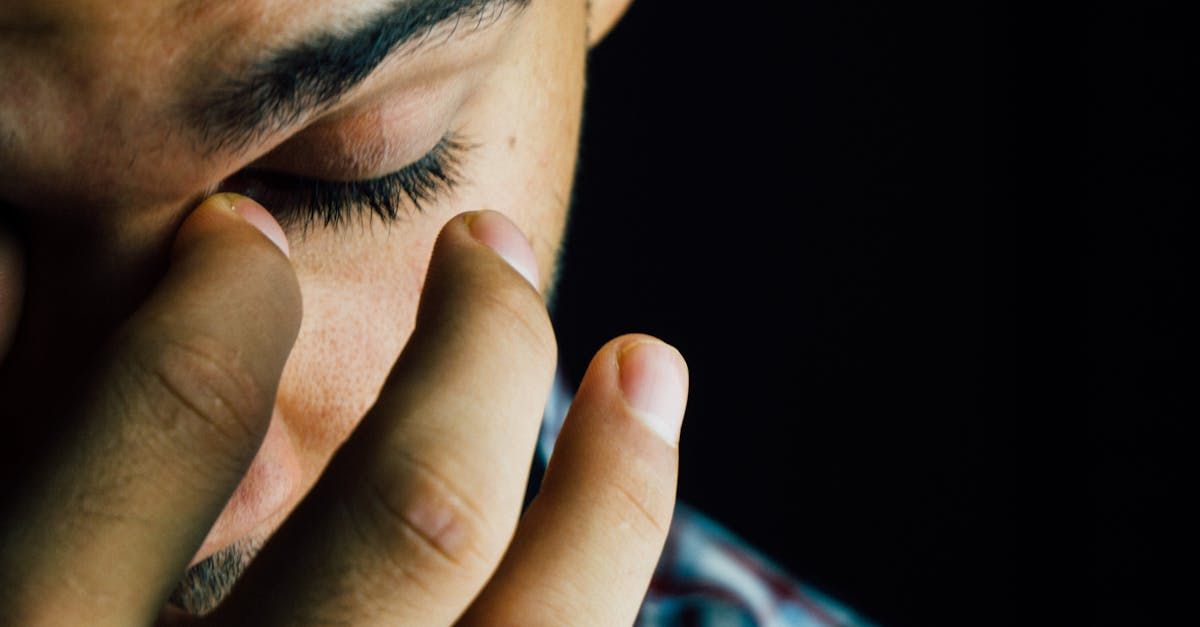
Mental Health and Cognitive Impact on Vision
The lack of sleep affects not only physical health but also mental well-being, influencing mood, motivation, and memory. These mental health issues can have a significant impact on eye health and vision, further complicating the effects of sleep deprivation.
Anxiety and Depression
Anxiety and depression are common side effects of poor sleep, and they can lead to increased eye strain. The stress and mental fatigue that accompany these conditions can exacerbate existing eye problems, making it harder for individuals to maintain proper eye health. Moreover, depression can lead to neglect of eye care and worsening conditions like dry eyes, redness, and dark circles underneath.
Psychological stress is also a risk factor for central serous chorioretinopathy, a condition that causes fluid buildup in the macula, leading to blurry vision. By managing anxiety and depression through better sleep, individuals can help reduce eye strain and protect their vision.
Cognitive Decline
Cognitive decline resulting from sleep deprivation can substantially impact eye coordination and visuospatial attention. This can lead to difficulties in visual tasks, making everyday activities like reading or driving more challenging. The impaired cognitive performance from lack of sleep can also affect eye coordination, leading to further vision problems.
Maintaining good sleep hygiene is crucial for preserving cognitive function and, by extension, eye health. Ensuring that you get enough rest each night can help keep your brain and eyes working together efficiently, reducing the risk of vision problems associated with cognitive decline.
Sleep Disorders and Their Effect on Eyes
Specific sleep disorders, like obstructive sleep apnea and insomnia, can severely affect eye health. Understanding these disorders and their impact can help in managing and mitigating their effects on vision.
Obstructive Sleep Apnea
Obstructive sleep apnea (OSA) is a sleep disorder that can significantly impact eye health, leading to conditions like glaucoma and floppy eyelid syndrome. Patients with OSA often experience increased sympathetic tone, which can cause endothelial dysfunction and various ocular complications. Changes in the eyelids, retina, or vision during an eye exam may indicate the presence of sleep apnea.
OSA can also cause transient ischemia in eyelid tissue, leading to floppy eyelid syndrome, characterized by discomfort and visual symptoms due to eye exposure. Continuous positive airway pressure (CPAP) therapy can alleviate ocular symptoms in patients with OSA, underscoring the importance of treating sleep apnea to protect eye health.
Insomnia
Insomnia, a prevalent sleep disorder, can lead to persistent eye strain and symptoms such as excessive tearing, a reflexive response to dry eyes. People with chronic insomnia often experience blurred vision due to consistent eye strain and lack of adequate rest.
Additionally, insomnia can lead to increased light sensitivity and blurry vision, further complicating eye health. Managing insomnia through proper sleep hygiene and possibly seeking medical advice can help reduce these symptoms and protect your eyes from long-term damage.
Floppy Eyelid Syndrome
Floppy eyelid syndrome (FES) is often seen in patients with obstructive sleep apnea, indicating a strong link between poor sleep quality and this eye condition. Symptoms of FES, such as a foreign body sensation and redness, are often worse upon waking due to nighttime exposure. This condition can lead to significant discomfort and visual disturbances if not managed properly.
Addressing the underlying sleep issues, such as through CPAP therapy for OSA, can help mitigate the effects of FES and improve overall eye health.
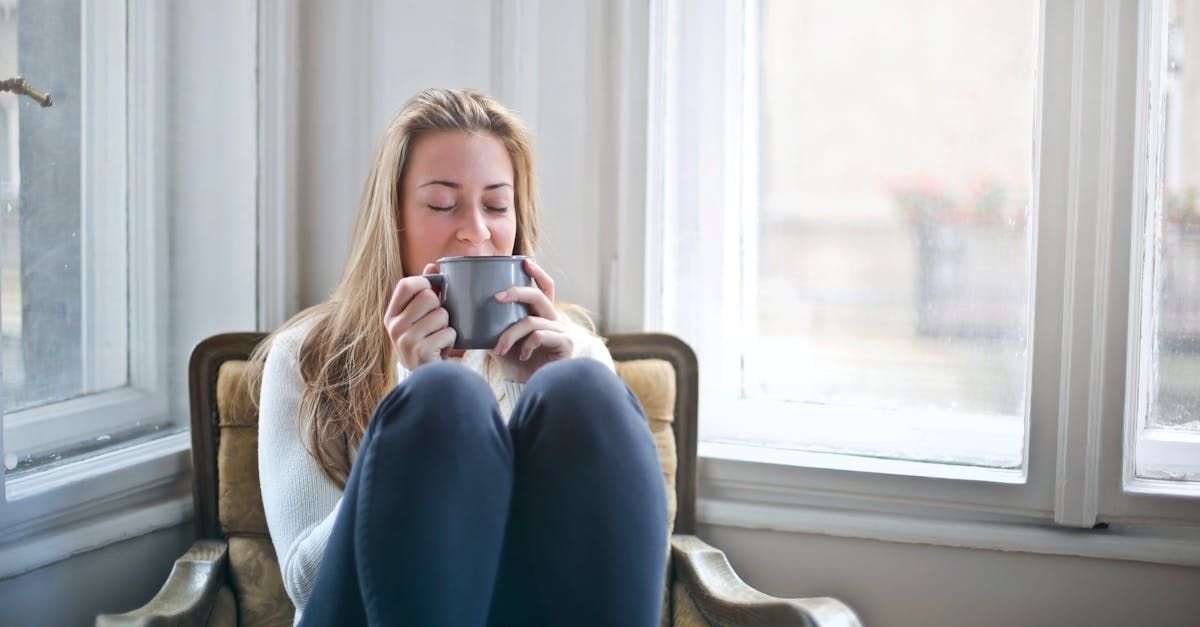
Preventing Eye Issues Through Better Sleep
Prevention of eye issues through improved sleep requires the creation of a sleep-friendly environment, adoption of healthy sleep habits, and regular eye checkups.
These proactive steps, recommended by an eye doctor, can help maintain eye health and support your immune system, preventing the onset of serious vision problems.
Creating a Sleep-Friendly Environment
A sleep-friendly environment is crucial for ensuring both a good night’s rest and a good night’s sleep. This includes:
- Controlling light exposure
- Maintaining an optimal room temperature
- Managing noise levels
- Ensuring a clutter-free space
Using blackout curtains can help create a dark environment conducive to sleep, while keeping the bedroom cool can aid in improving sleep quality.
A white noise machine can help drown out external sounds that might disrupt sleep, and a clutter-free bedroom reduces stress, making it easier to relax and get restful sleep. These adjustments can significantly improve your sleep quality and, consequently, your eye health.
Healthy Sleep Habits
Maintaining good eye health necessitates the adoption of healthy sleep habits. Reducing blue light exposure before bed, such as by using tools like Night Shift on digital devices, can help improve sleep quality,. Keeping electronic devices out of the bedroom further reduces exposure to blue light and aids sleep.
Some tips for improving sleep quality include:
- Regular exercise, especially in the morning, can help regulate the sleep-wake cycle
- Avoiding caffeine and alcohol in the evening can reduce sleep disruptions
- Practicing relaxation techniques like meditation can also reduce stress and improve sleep
Following these tips can benefit both your overall health and your eyes.
Regular Eye Checkups
Regular eye checkups are crucial for early detection of conditions that poor sleep can exacerbate. It is recommended to have a comprehensive eye exam every one to two years to ensure that any potential issues are caught early and managed effectively.
These checkups can help maintain overall eye health and prevent serious vision problems from developing. By combining regular eye exams with good sleep hygiene, you can protect your eyes and ensure they stay healthy for years to come.
Summary
In conclusion, sleep deprivation has both immediate and long-term effects on eye health. From dry, itchy eyes and bloodshot eyes to serious conditions like glaucoma and diabetic retinopathy, the consequences of inadequate sleep are significant. Mental health issues such as anxiety and depression, as well as cognitive decline, further exacerbate these problems.
Preventing these issues involves creating a sleep-friendly environment, adopting healthy sleep habits, and having regular eye checkups. By prioritizing sleep, you can protect your eyes, enhance your overall well-being, and enjoy clearer, healthier vision.
Frequently Asked Questions
How does lack of sleep affect my eyes?
Lack of sleep can lead to dry, itchy, and bloodshot eyes, and reduce tear production, making your eyes more prone to irritation and infection. This can also cause eye twitches and spasms due to muscle fatigue. It's important to prioritize good sleep for overall eye health.
Can poor sleep lead to permanent vision loss?
Yes, chronic sleep deprivation can increase the risk of serious eye conditions like glaucoma and diabetic retinopathy, which can lead to permanent vision loss if not managed properly.
How are sleep disorders like sleep apnea linked to eye health?
Treating sleep disorders like obstructive sleep apnea can help mitigate their negative impact on eye health, as they are linked to conditions such as glaucoma and floppy eyelid syndrome.
What are some healthy sleep habits to improve eye health?
Reducing blue light exposure before bed, exercising regularly, avoiding caffeine and alcohol in the evening, and practicing relaxation techniques are some healthy sleep habits that can improve eye health. These habits help to enhance sleep quality and protect the health of your eyes.
How often should I have an eye checkup to maintain eye health?
You should have a comprehensive eye exam every one to two years to maintain overall eye health and detect early signs of eye conditions.
All Rights Reserved | Pro Optical

